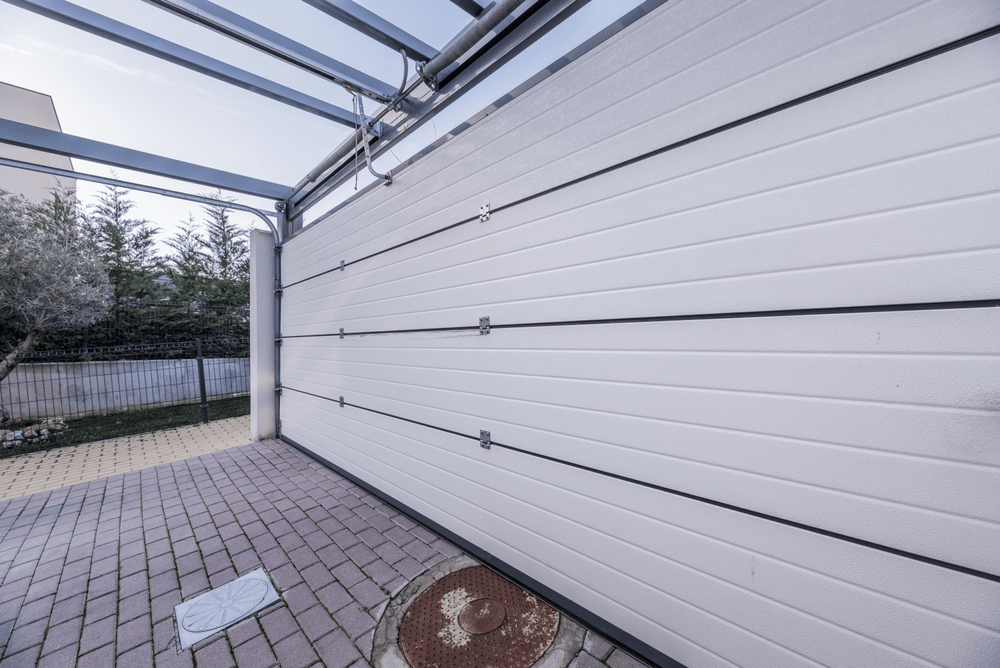Cold weather can be harsh on many aspects of your home, and your garage door is no exception. Among the most vulnerable components are the springs, which are essential for the smooth operation of your garage door. When temperatures drop, the risk of your garage door springs breaking significantly increases. In this article, we’ll explore why garage door springs are more likely to fail in cold weather and what steps you can take to prevent this common issue.
The Impact of Cold Weather on Metal Springs
Garage door springs are made of metal, typically high-tension steel, which contracts and becomes brittle as temperatures fall. The cold causes the metal to lose its flexibility, making the springs more rigid and prone to snapping under pressure. When the springs are already under tension from supporting the weight of the garage door, the added stress of cold temperatures can lead to sudden breakage. This is why garage door repair in Conroe is often in high demand during winter months.
Wear and Tear Accelerated by Temperature Fluctuations
Over time, garage door springs endure cycles of tension and release each time the door opens and closes. These cycles gradually weaken the springs, and when combined with rapid temperature changes, the wear and tear accelerate. The transition from a warm environment inside the garage to the freezing outdoor air can cause the springs to expand and contract rapidly. This constant fluctuation weakens the metal, increasing the likelihood of a spring snapping, especially if the springs are older or haven’t been maintained regularly.
The Role of Moisture in Winter Garage Door Issues
Cold weather often brings increased moisture in the form of rain, snow, or ice, which can exacerbate the problem. When moisture accumulates on metal springs, it can lead to rust and corrosion, further weakening the structural integrity of the springs. Rust can cause the metal to deteriorate, leading to potential fractures in the springs. If you notice rust or hear unusual noises when your garage door is operating, it might be time for garage door repair in Conroe before the problem worsens.
Preventive Measures to Protect Your Garage Door Springs

To reduce the chances of your garage door springs breaking in cold weather, there are some preventive steps you can take:
- Regular Maintenance: Schedule regular inspections to check the condition of the springs, ensuring they are free of rust and properly lubricated.
- Lubrication: Use a high-quality lubricant specifically designed for garage doors. This helps to maintain the flexibility of the springs and reduce friction.
- Replacing Old Springs: If your garage door springs are more than seven years old, it may be time to replace them. New springs are less likely to break, and replacing them proactively can prevent inconvenient breakdowns.
Why Professional Garage Door Repair Matters
If you encounter a broken spring, it’s crucial to avoid attempting a DIY repair. Garage door springs are under high tension and can be dangerous to replace without proper tools and expertise. Trusting a professional service for garage door repair in Conroe ensures that the job is done safely and correctly. A skilled technician can also identify other potential issues that may be overlooked, providing comprehensive maintenance to keep your garage door operating smoothly.
Conclusion
Don’t let the cold weather catch you off guard. Regular maintenance and timely garage door repair in Conroe can help prevent the inconvenience and potential danger of a broken garage door spring. If you notice any signs of wear, unusual noises, or difficulty operating your garage door, contact TJ’s Garage Door Service to schedule an inspection. Keep your garage door functioning safely and efficiently all winter long—call us today!


